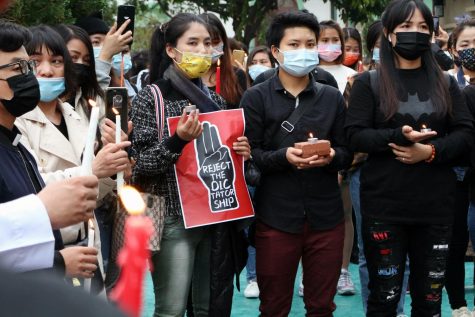The Myanmar Protests: Origins, goals, and its effects
On February 1st, the military of Myanmar launched a coup to seize power in the southeast Asian nation. The coup was successful, ousting the democratic government led by Aung San Suu Kyi that had been in place since 2011. Ever since, protests of all kinds have poured across the nation and internationally to condemn these actions. Within Myanmar, protests have resulted in upwards of 50 civilian casualties and growing, with a particularly violent crackdown the military resulting in 38 dead in a protest on March 3rd. As protests have continued, the neighboring areas have gotten involved, with China having major ties to the newly established military junta.
Origins and how it began:
The democratic movement led by Aung San Suu Kyi has only been the ruling party in Myanmar for a brief time, having finally taken power via election in 2011. Until then, a series of military dictatorships had ruled Myanmar ever since 1962. The new democratic movement had been in control of Myanmar until February 1st, when the military led by General Min Aung Hlaing staged a coup d’etat under the pretense of falsified election results from the November 2020 national election. Almost immediately after the democratic government was ousted, and key figures of the party were arrested, civilian protests began forming the new military junta.

Photo courtesy of the Macau Photo Agency
The current situation:
It has been over a month since the coup successfully took over, and the protests have only grown in number with ever increasing international attention. So far, over consecutive protests, there have been 50 fatalities and even greater casualties caused by violent crackdowns by the military. There have also been nightly blackouts and internet shut down by the Burmese military.
International responses:
The reactions to this coup have been universally condemned by nations both within Asia and the west, with the notable exception of China. When a joint UN condemnation was to be sent, both China and Russia vetoed its publication. It is important to note that Myanmar is one of the most economically potent nations in Southeast Asia, and certainly for China, notably having invested billions into a pipeline approved by the democratic government. As a result, it is likely that both the veto of the UN statement and the refusal by the CCP to comment on the coup is due to these vested interests within Myanmar, and as Myanmar’s closest and most powerful neighbor, it will be interesting to see what China’s next move is.
Conclusion:
It has been over a month since the Burmese military has taken power, and despite numerous protests, its power only seems to grow. The future of Myanmar’s government is uncertain, but the chances of the democratic government returning lessens each moment.
Hello, I'm Lorne Fowler. I'm a senior at Oakton this will be my first year as a staff writer for Oakton Outlook. I take interest in writing about a&e,...





